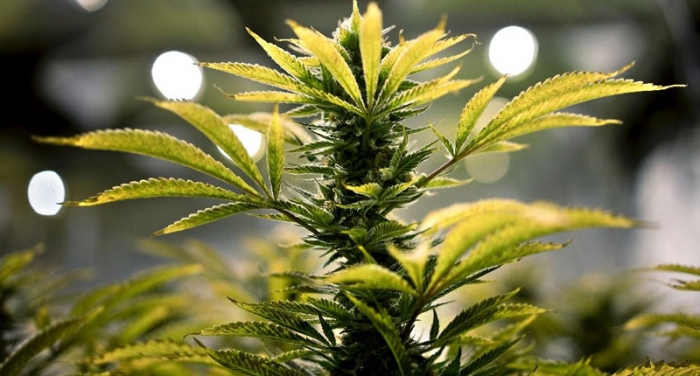You are here
Home 🌿 Recreational Marijuana News 🌿 Durham marijuana activist hoping for a craft cannabis industry in Ontario 🌿Durham marijuana activist hoping for a craft cannabis industry in Ontario

Local reaction is starting to roll in after the federal government announced its plans for the legalization of recreational marijuana.
Pickering resident Marko Ivancicevic is a long-time marijuana activist in Durham and a partner in Cannabis Consultants of Canada, a company that assists medical marijuana users with obtaining authorization to possess and produce cannabis legally.
He welcomed the government's announcement.
"Obviously, like many Canadians I'm happy youth will not be saddled with simple possession charges, as well as any other individuals with simple possession charges," he said.
The government has said the new legislation will kick in no later than July 2018, but marijuana remains illegal until then except for medical marijuana users.
The legislation would allow the sale of marijuana to people 18 and over though provinces that have a higher minimum drinking age could restrict sales to people 19 and over.
Individuals would be allowed to possess 30 grams of legal cannabis and to grow up to four plants per household.
When it comes to impaired driving, the feds will set legal limits on blood THC levels and will also strengthen alcohol-impaired driving penalties increasing fines and jail times.
The legislation also sets penalties for supplying marijuana to minors, including a maximum jail sentence of 14 years.
The production of marijuana would be under federal purview while distribution will be up to the provinces.
Ivancicevic pointed out the government has committed to increasing funding for Health Canada which he feels is important as there is a large backlog of applications to produce marijuana.
"I understand at this point there's well over 2,500 applications," he said, adding that he doesn't believe current production levels — which meet the demand for medical users — are enough to meet the demand for recreational users as well.
With distribution up to provinces, Ivancicevic said he's hoping the Ontario doesn't adopt an LCBO-type model for marijuana.
"We're more hopeful for a craft cannabis industry which would be inclusive of smaller producers and retail store fronts so there's easy direct access for cannabis," he said.
While the government has said it considers medical and recreational use to be separate issues, Ivancicevic said he's hoping the announcement will make it easier for medical users to access cannabis with more insurance opting to cover it.
Currently, a typical medical marijuana user pays $5 to $14 per gram and consumes between one to 10 grams per day, said Ivancicevic.
"That's obviously a huge burden especially for seniors which is the highest growing demographic of medical users of cannabis in Canada," he said, adding that people on social assistance also often have to make tough choices. "They have to make the choice of should I eat or should I have my medicine and that's not a choice any person should have to make."
Oshawa Conservative MP Colin Carrie was not impressed with the announcement and said he believes the legislation was aimed at keeping promises to pot smokers, not parents.
The Conservative health critic said he's worried about the health and safety aspect of the legislation and said his party supported decriminalization with tickets for possession of small amounts instead of legalization.
He said he's had push back from constituents saying, "Oh really next year at the lake are we going to see all these Canada flags with marijuana leaves on it because that's what the prime minister wants to do."
With respect to the health aspect, he pointed to medical research that says marijuana consumption is not safe for people under age 25.
"How does this legislation protect kids from these adverse effects," asked Carrie. "I had a mom talk to me today whose son developed schizophrenia and psychological problems after smoking marijuana … what do you say to those parents?"
He also expressed concerns about people driving and working while impaired.
"How do we tell if you're impaired or not because the science is not clear at what level impairment occurs," he said.
Carrie also expressed concerns about the role the provinces and municipalities would play, questioning if the feds were downloading some of their responsibilities.
420 Intel is Your Source for Marijuana News
420 Intel Canada is your leading news source for the Canadian cannabis industry. Get the latest updates on Canadian cannabis stocks and developments on how Canada continues to be a major player in the worldwide recreational and medical cannabis industry.
420 Intel Canada is the Canadian Industry news outlet that will keep you updated on how these Canadian developments in recreational and medical marijuana will impact the country and the world. Our commitment is to bring you the most important cannabis news stories from across Canada every day of the week.
Marijuana industry news is a constant endeavor with new developments each day. For marijuana news across the True North, 420 Intel Canada promises to bring you quality, Canadian, cannabis industry news.
You can get 420 Intel news delivered directly to your inbox by signing up for our daily marijuana news, ensuring you’re always kept up to date on the ever-changing cannabis industry. To stay even better informed about marijuana legalization news follow us on Twitter, Facebook and LinkedIn.




